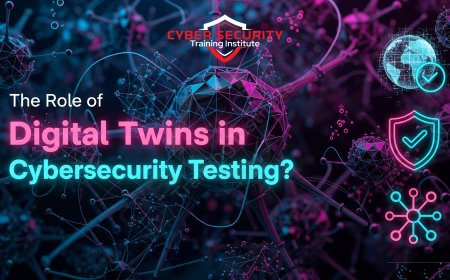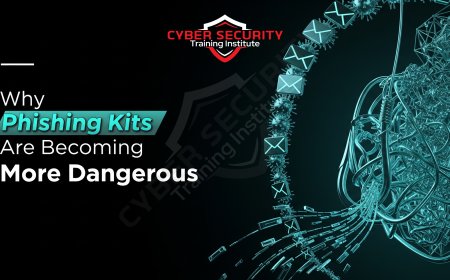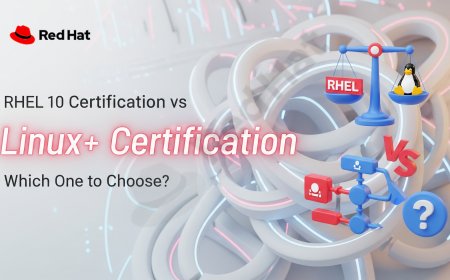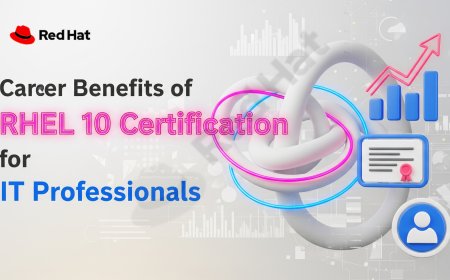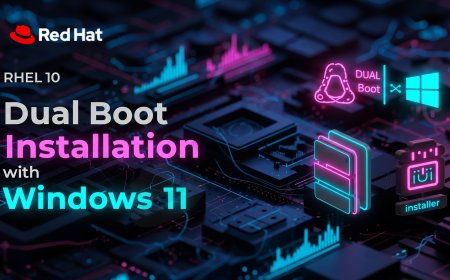Real-Life Enumeration Techniques | Going Beyond Nmap
This blog offers a beginner-friendly roadmap to conquering the OSCP (Offensive Security Certified Professional) exam. From must-know tools and daily routines to building the right mindset and pro tips, this guide is your all-in-one resource to kickstart your ethical hacking journey. Ideal for first-time takers and cybersecurity enthusiasts aiming for real-world penetration testing skills.
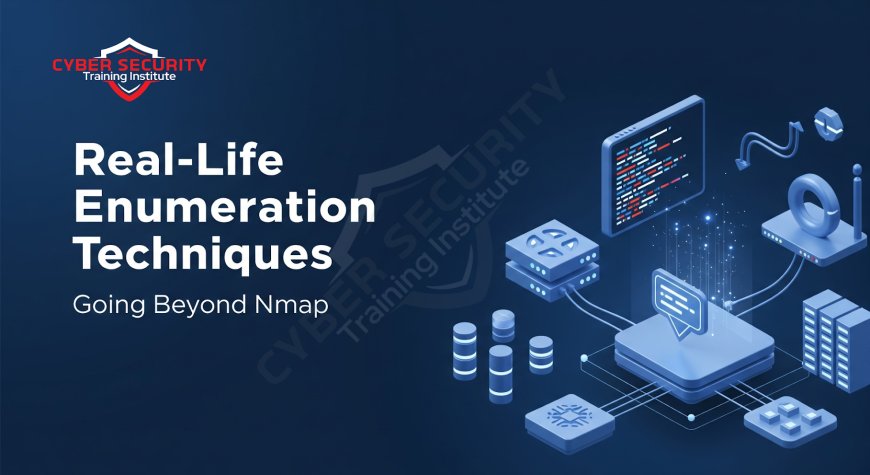
Table of Content
- Introduction
- What Is Enumeration in Cybersecurity?
- Why Go Beyond Nmap?
- Top Enumeration Tools Beyond Nmap
- Best Practices for Real-Life Enumeration
- Conclusion
- FAQ
Introduction
Enumeration is a foundational step in penetration testing and ethical hacking, where the attacker gathers detailed information about the target system — services, usernames, shares, OS details, and vulnerabilities. While Nmap is often the first tool used for network discovery, it's far from the only one. In this guide, we dive deep into real-life enumeration techniques, showcasing tools like RustScan, Enum4linux, and more that go beyond Nmap to paint a full picture of a network or system.
What Is Enumeration in Cybersecurity?
Enumeration is the process of extracting useful information from a system or network, including:
-
Open ports and services
-
Network shares
-
User accounts
-
Operating system details
-
Vulnerable versions or configurations
This phase is crucial in turning a reconnaissance scan into a targeted attack simulation, helping ethical hackers and red teams understand where to strike or harden defenses.
Why Go Beyond Nmap?
While Nmap is incredibly powerful, it has limitations. It’s great for discovering live hosts and open ports but doesn't:
-
Dive deeply into SMB shares
-
Reveal usernames on the system
-
Interact with Active Directory
-
Detect specific service-level vulnerabilities
Using complementary tools gives depth and context to your scans — essential in real-life hacking scenarios.
Top Enumeration Tools Beyond Nmap
Here’s a breakdown of tools and techniques that elevate your enumeration game:
| Tool | Primary Use | Platform |
|---|---|---|
| RustScan | Fast port scanner, integrates with Nmap | Linux, Mac |
| Enum4linux | SMB/NetBIOS enumeration, Windows info gathering | Linux |
| Netcat | Manual service interaction, banner grabbing | Cross-platform |
| Nmap NSE | Scripting engine for in-depth service probing | Cross-platform |
| Nikto | Web server and app enumeration | Linux, Mac |
| LDAPSearch | LDAP enumeration on AD environments | Linux, Mac |
| SNMPWalk | SNMP-based device enumeration | Linux |
| CrackMapExec | SMB/AD enumeration, credential validation | Linux |
1. RustScan – Blazing Fast Port Scanning
RustScan is a modern replacement or complement to Nmap, built for speed. It scans 65,535 ports in seconds and automatically hands off the results to Nmap for service detection.
✅ Key Features:
-
Multithreaded scanning
-
Nmap integration (
-aflag) -
Lightweight and fast
-
Ideal for CTFs and large environments
Command:
2. Enum4linux – SMB and NetBIOS Enumeration
A go-to tool for Windows environment enumeration. It leverages SMB, RPC, and NetBIOS to fetch domain users, groups, and share information.
✅ What It Can Do:
-
List domain users
-
Identify password policies
-
Detect open shares
-
Get OS version details
Command:
3. Nmap NSE Scripts – Going Deeper with Nmap
The Nmap Scripting Engine (NSE) makes Nmap even more powerful. With NSE, you can run scripts for:
-
Vulnerability detection
-
SMB enumeration
-
HTTP service analysis
✅ Examples:
4. Netcat – Manual Banner Grabbing
Netcat (nc) is a network utility used to manually interact with open ports and grab service banners, often revealing software versions or misconfigurations.
Example:
5. Nikto – Web Server Enumeration
Nikto is a web vulnerability scanner that tests for:
-
Default files and credentials
-
Misconfigured servers
-
Outdated server software
Command:
6. SNMPWalk – SNMP Enumeration
If port 161 is open, use snmpwalk to query devices for:
-
System names
-
Interfaces
-
Running processes
-
Routing tables
Command:
7. CrackMapExec – Active Directory Enumeration
Perfect for red teamers, CrackMapExec (CME) helps in post-authentication enumeration, password spraying, and gathering data from AD.
Common Usage:
Best Practices for Real-Life Enumeration
-
Validate scan results: Cross-verify open ports and service details
-
Use multiple tools: One tool may miss what another catches
-
Automate when possible: Speed up enumeration with scripts and automation
-
Avoid noisy scans: Be stealthy in production environments
-
Document findings: Notes help prioritize vulnerabilities
Conclusion
Real-world enumeration requires a layered and comprehensive approach. While Nmap remains foundational, tools like RustScan, Enum4linux, and CrackMapExec offer deeper insights into services, users, and network weaknesses. Mastering these enumeration techniques gives ethical hackers and penetration testers a clear advantage in any engagement.
FAQ
What is the OSCP certification?
The Offensive Security Certified Professional (OSCP) is a hands-on penetration testing certification that tests your ability to identify, exploit, and report vulnerabilities in real-world systems.
Is OSCP worth it in 2025?
Yes, OSCP remains highly respected in the cybersecurity field and is often a requirement for ethical hacking and penetration testing roles.
How difficult is the OSCP exam?
The OSCP exam is considered one of the most challenging penetration testing exams due to its 24-hour practical test format and strict reporting requirements.
How long should I prepare for the OSCP exam?
Most candidates prepare for 2–4 months with 2–3 hours of study per day, depending on their prior experience in cybersecurity and Linux.
What are the prerequisites for OSCP?
Although there are no official prerequisites, it's recommended to have basic knowledge of networking, Linux, scripting, and cybersecurity concepts.
Do I need programming skills for OSCP?
Yes, basic scripting in Python, Bash, and PowerShell is highly useful for writing exploits and automating tasks.
Can beginners take the OSCP exam?
Yes, with proper dedication and a structured learning plan, beginners can prepare and pass the OSCP exam.
What topics are covered in OSCP?
Topics include enumeration, exploitation, privilege escalation, buffer overflows, Active Directory, Linux and Windows hacking, and report writing.
What tools should I learn for OSCP?
Key tools include Nmap, Netcat, Burp Suite, Gobuster, Metasploit, LinPEAS, WinPEAS, Enum4linux, and Searchsploit.
Can I use Metasploit in the OSCP exam?
You are allowed to use Metasploit on only one machine during the exam, so manual exploitation skills are crucial.
How important is the lab environment?
The PWK (Penetration Testing with Kali) lab is vital for hands-on practice and simulates real-world penetration testing scenarios.
What is the “Try Harder” motto?
It's the OSCP mindset of persistence and problem-solving. Candidates are encouraged to push through challenges and learn independently.
Do I need to submit a report for the exam?
Yes, a professional exam report is required. It must include detailed steps and screenshots for every machine you exploit.
What happens if I fail the OSCP exam?
You can retake the exam by purchasing a retake voucher. Many candidates don’t pass on their first try — persistence is key.
Can I use Hack The Box or TryHackMe for practice?
Yes, both platforms offer excellent OSCP-style machines that can enhance your enumeration, exploitation, and reporting skills.
How many machines are in the OSCP exam?
The exam includes 5 machines with varying point values. You need 70 out of 100 points (plus a valid report) to pass.
Does OSCP certification expire?
No, the OSCP certification does not expire. However, staying updated with new techniques and tools is recommended.
What’s the cost of the OSCP exam?
The OSCP package starts at $1599, which includes the PWK course material, lab access (30/60/90 days), and one exam attempt.
Can I pause the OSCP exam during the 24 hours?
You can take breaks, but the 24-hour clock keeps running. Plan your time carefully and rest as needed.
Is OSCP recognized globally?
Yes, OSCP is globally recognized and highly regarded in both government and private cybersecurity sectors.
What's Your Reaction?
 Like
0
Like
0
 Dislike
0
Dislike
0
 Love
0
Love
0
 Funny
0
Funny
0
 Angry
0
Angry
0
 Sad
0
Sad
0
 Wow
0
Wow
0






